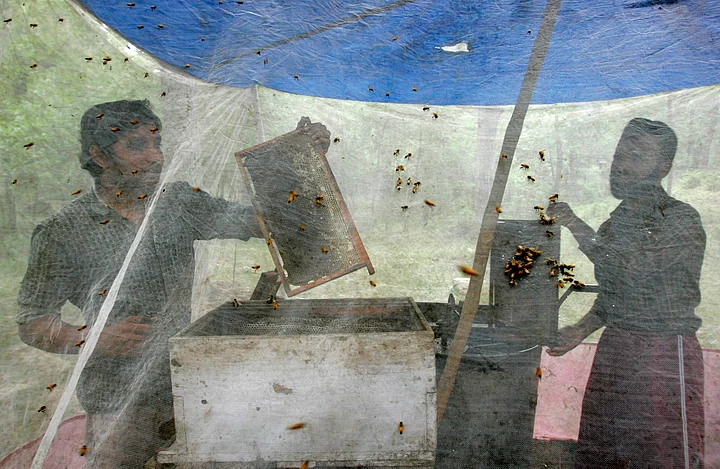Behind many of the world’s 100 most important crops – from eggplants to onions to apples – a small, often unrecognized worker is busy spreading pollen from plant to plant.
Without bees, 70 percent of the world’s fruits would not be able to survive. Bees contribute to 9 percent of global agriculture and account for more than 100 billion dollars of the industry.
But around the world, bee colonies are on the verge of death in what has been called Colony Collapse Disorder.
Researchers have not been able to identify the cause of Colony Collapse Disorder, but many think it is associated with the use of certain pesticides, as well as an invasion of mites and climate change.
And now, the issue could have devastating consequences in India.
My community is completely dependent on honey bees. Teenage boys in our community will be trained in climbing trees and fetching honey from as young as 15 years. Fetching honey has been our occupation for several decades.Madhan Bomman, a beekeeper from Nilgiris, told ClimateChangeNews
For communities in Nilgiris, a combination of tourism and climate change is killing off the bees that many rely on for their livelihoods. Around 18 percent of tree species and 22 percent of shrubs in the region rely on pollination from bees.
In recent years, forests that these bees live in have been replaced with concrete, and erratic rain patterns have had dramatic effects on the plants they rely on for pollen, leading to a mass disappearance of the crucial species.
The phenomenon has also been identified in Kerala and other parts of the country.
We have documented a 60 percent decrease in the population of honeybees and sparrows in Kerala. The demand for crops that rely on insects for pollination has more than tripled over the last half-century. Disappearance of honeybees, therefore, could cause considerable stress.Sainuddin Pakattazhy, a zoology expert from S N College, Punalur, told the Times of India
